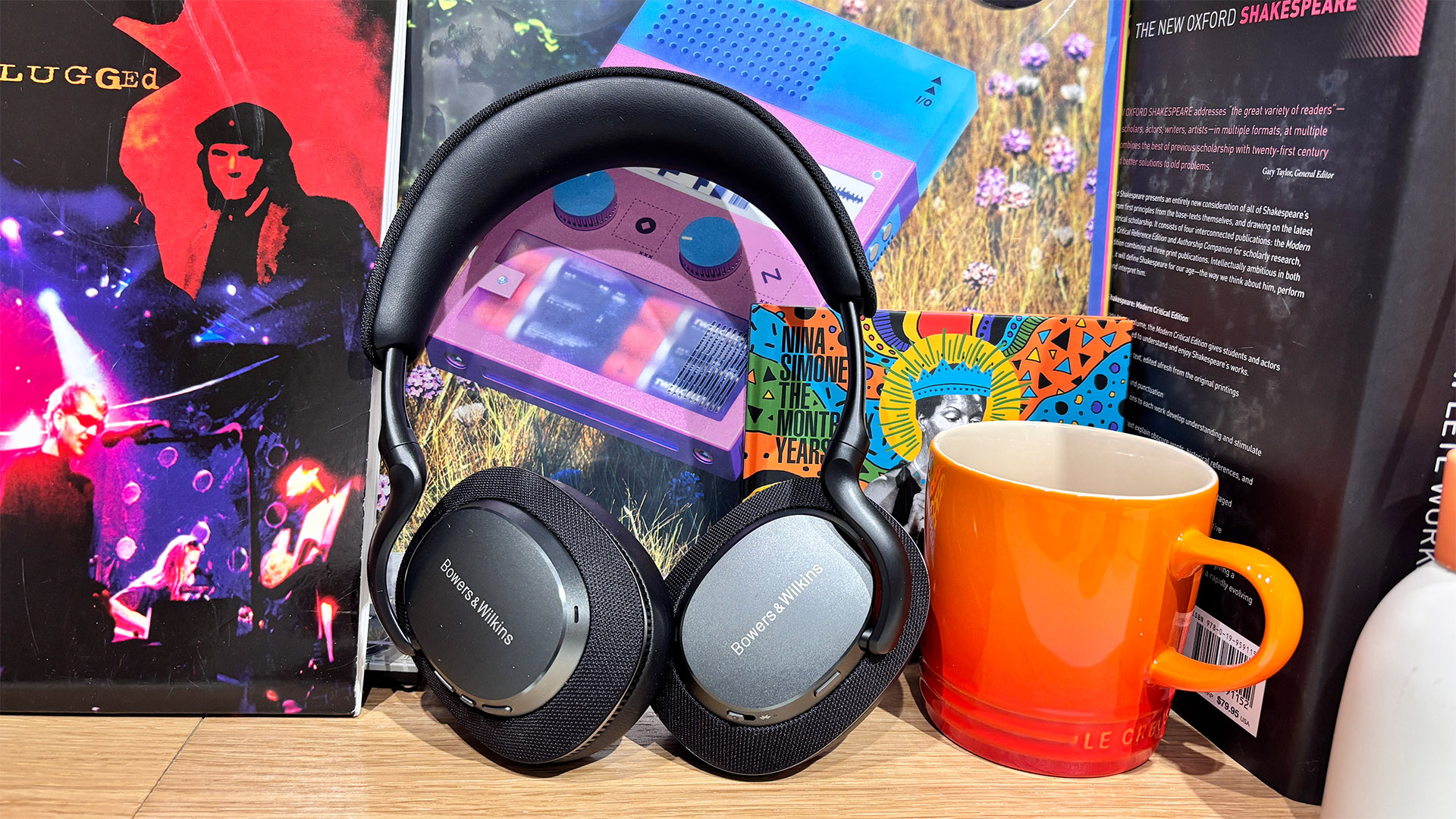Sony Theatre Bar 9 vs Sonos Arc: which Atmos soundbar is best?
If you want Atmos from a one-bar setup, which of these should you go for?
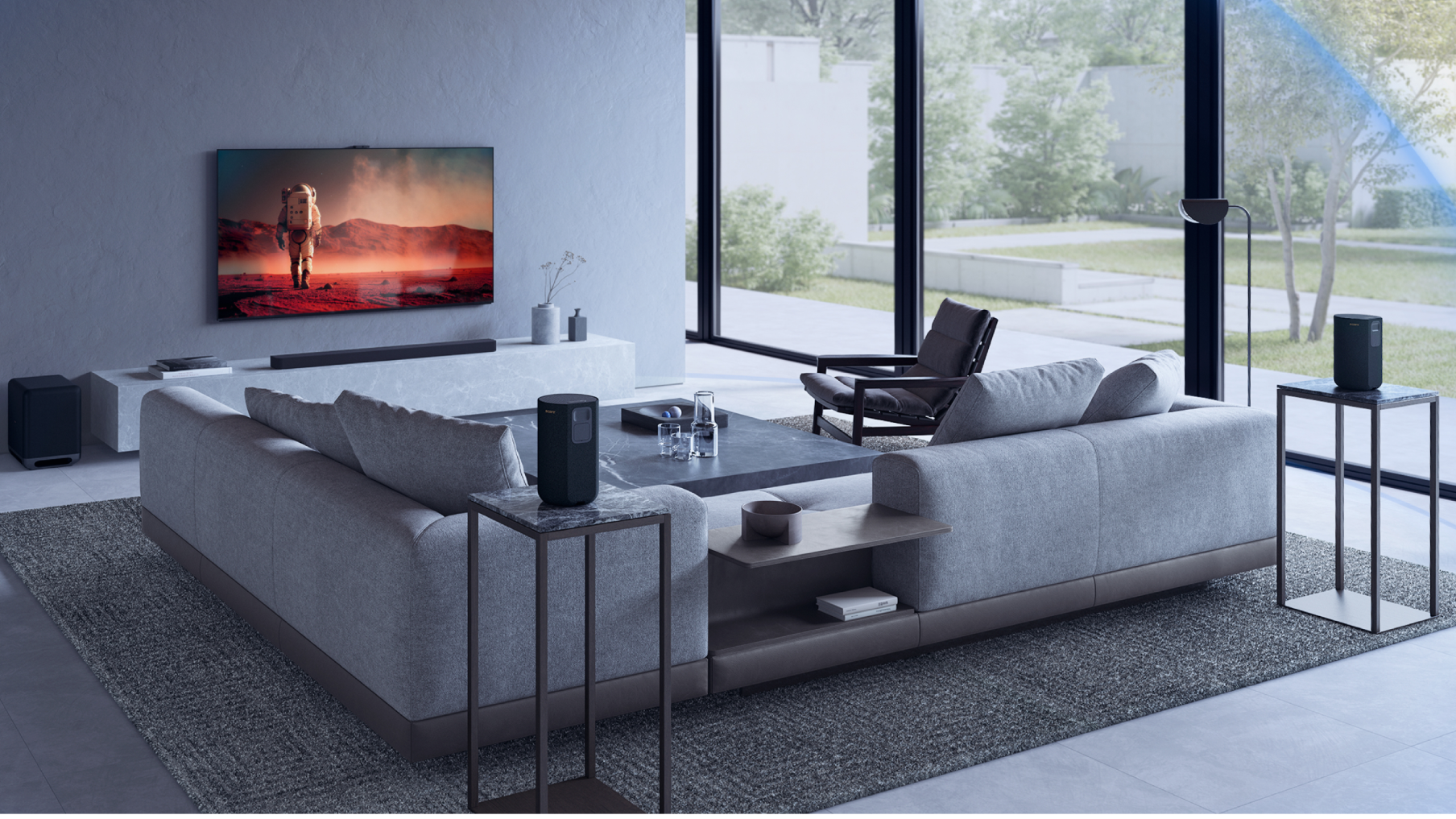
Sony has just announced its updated TV line up for 2024, and as is often the case, it's announced a couple of new soundbars too.
Sitting at the top of that line up is the Atmos-capable Sony Theatre Bar 9, a one-box soundbar that replaces the five-star Sony HT-A7000, and our pick for the best soundbar you can currently buy.
Before we get it into our testing rooms for a full review, we thought we'd put it up against another top Atmos soundbar and a firm reader favourite, the Sonos Arc, to see how they compare on paper.
Sony Theatre Bar 9 vs Sonos Arc: price
Just like the HT-A7000 before it, the Sony Theatre Bar 9 is significantly more expensive than the Sonos Arc at launch, which positions it as the more premium option of the two. How that plays out in performance remains to be seen.
- Sony Theatre Bar 9: £1399 / $1399
- Sonos Arc: £769 / $899
Sony Theatre Bar 9 vs Sonos Arc: design
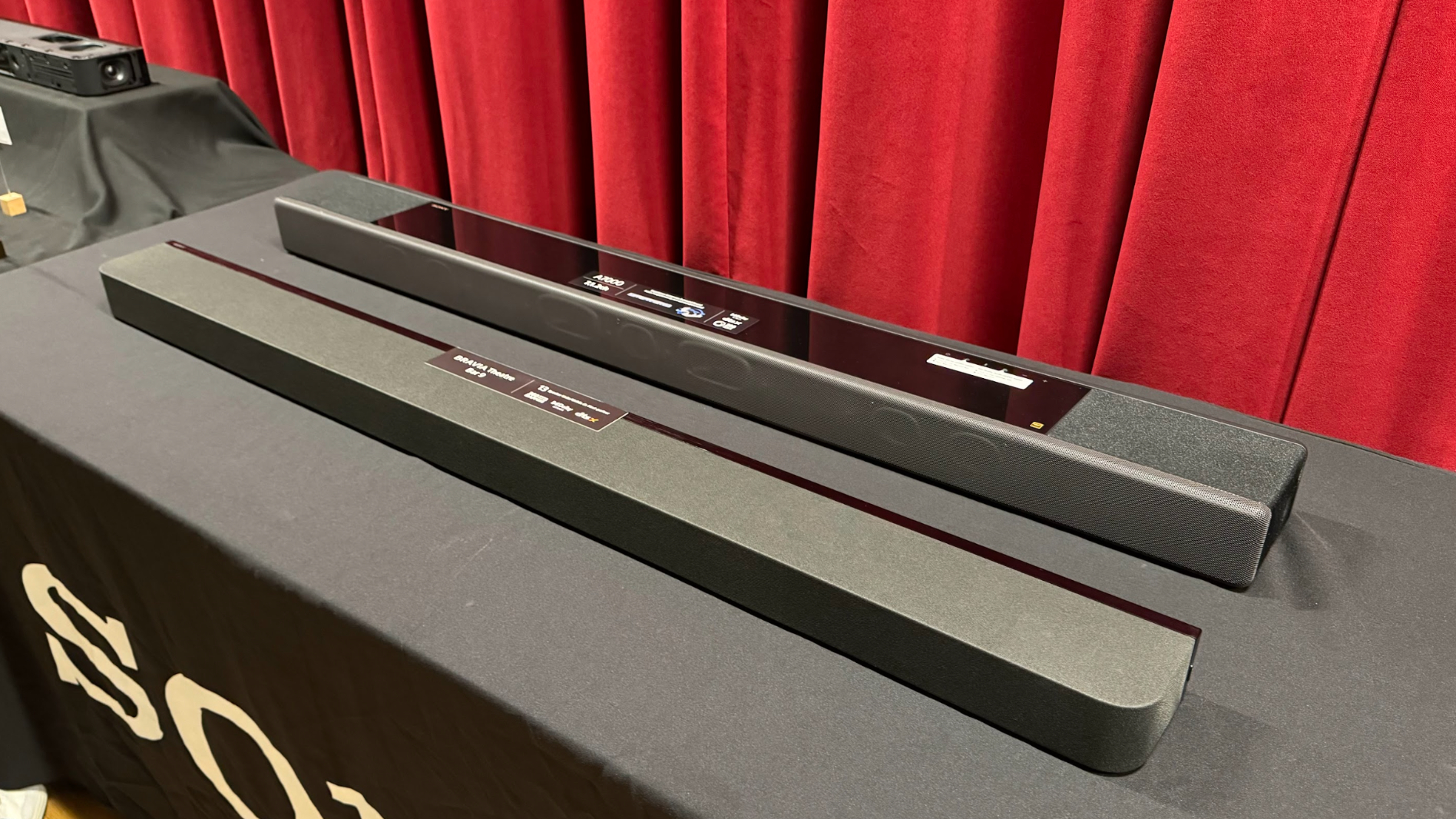
Sony has refined the design of its Theatre Bar 9 compared with the A7000, but it's arguably still not as stylish to look at as the curved edges Sonos Arc.
We aren't dismissing Sony's efforts here though – it has softened its look with some curved edges towards the front, as well as being 36% more compact than its slightly chunky predecessor.
That makes it more compact than the Arc too, measuring 130 x 11.3 x 6.4cm, compared with the Arc's 114.3 x 11.7 x 8.6cm. If space is a concern for you, the Sony might have the edge.
It should sit nicely under most TVs, but will be made for slipping under the likes of the new Bravia 8 and Bravia 9, as well as the A95L — all of which can be raised up on their legs to allow a soundbar to sit nicely underneath.
As for the finish, the Theatre Bar 9 opts for a material grille compared with all-metal design on the Sonos. That's a matter of taste as to which you might prefer, but metal can be a little easier to keep dust free than fabric.
Overall we'd argue the Sonos has the edge on design, but if you're short on space, then the Theatre Bar 9 may be a better choice.
Sony Theatre Bar 9 vs Sonos Arc: features
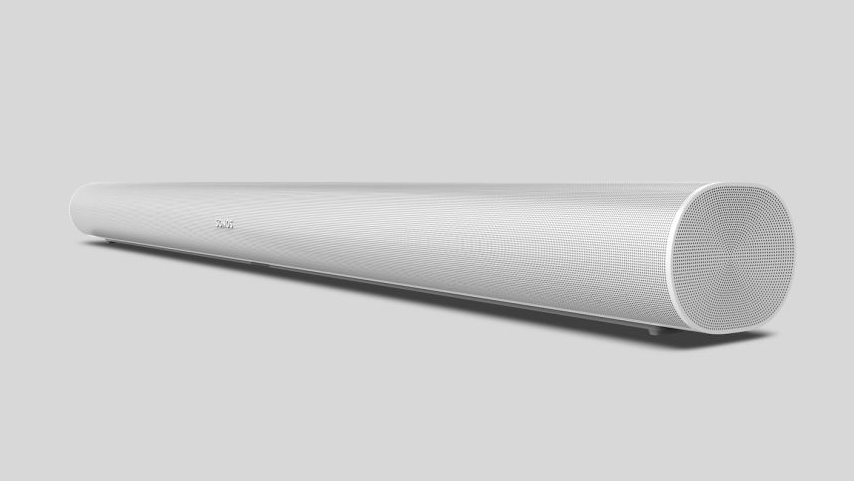
So far, we know there are few core features on Sony's new Theatre Bar 9, and a couple that have been updated from last year.
First up is Sony's 360 Spatial Sound Mapping technology, which works with the Theatre Bar 9's built-in Atmos capabilities to create multiple "phantom" speakers where there aren't actually any, to create sound that feels like it's coming from all around you — not just above.
Previously, you had to use compatible rear surround speakers, like Sony's SA-R5S and SA-R3S, to unlock this functionality, but with the Theatre Bar 9, you can get it from a single bar.
That doesn't mean you can't add optional surrounds, or a subwoofer for that matter, and Sony's Sound Field Optimisation will make sure everything is sounding tip top, and tweak your speakers to sound their best, wherever they are.
That's very much like the Sonos Arc. It can produce an Atmos sound without any help (we'll touch a little bit more on how in the sound section), but you can add in some of Sonos' other speakers as rear surrounds, or the Sonos Sub, for a more convincing soundfield. Similarly to Sony, Sonos also offers its Truplay technology to tune all of its speakers to sound their best in their current location.
The next two features that are unlocked when you combine the Theatre Bar 9 with compatible Sony TVs, creating a compelling argument for one-brand buying. First is the Acoustic Center Sync, which fuses the sound of the TV with the soundbar, but makes all of the audio sound like it's coming directly from the screen.
We have had some issues with this in the past but it remains to be seen how this has been improved in 2024.
Voice Zoom 3, on the other hand, uses AI to understand what dialogue is in a soundtrack, and allows you to focus in on that, and boost it or reduce it as you see fit.
The Sonos Arc allows you to boost dialogue too, as well as tweak the EQ, from its very extensive app.
Of course, one of the biggest benefits to the Sonos Arc is its ability to be included in the excellent Sonos multiroom system.
Sony has its own multiroom offering within its wireless speaker line up, and while we expect the Theatre Bar 9 will be included, we don't know for sure. Even if it is, we'd hasten that the Sonos experience will top it, if that is top of your priorities.
In terms of connectivity, they both have an eARC port for hooking up to your TV to allow for lossless Atmos playback. There's also an HDMI in on the Sony, to allow you to hook up a Blu-ray player or games console through the soundbar if you wish.
There's Bluetooth on the Theatre Bar 9 for wireless playback, which there isn't on the Sonos, while the Sonos has voice control but the Sony doesn't. Both do, however, have AirPlay and Spotify Connect.
It's clear that both the Sony and Sonos soundbars are talented in their own ways, and particularly within their own ecosystems. If you have other Sonos kit, the Arc makes a lot of sense, whereas if you've bought one of the best Sony TVs, the Theatre Bar 9 could make the perfect companion, but it also gives your setup the flexibility with some extra connectivity too.
Sony Theatre Bar 9 vs Sonos Arc: sound
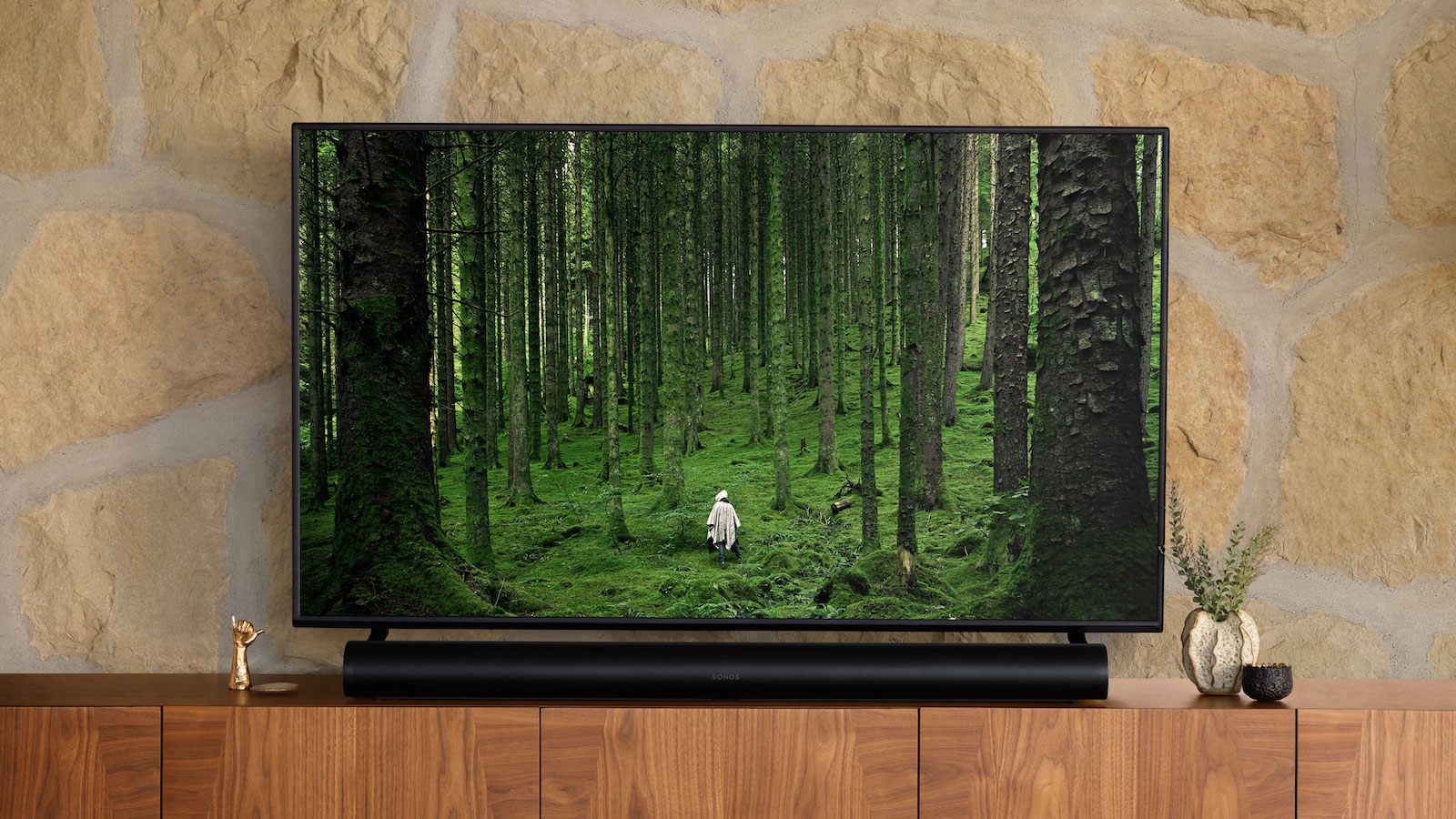
Both the Bar 9 and the Sonos Arc support Dolby Atmos, but only the Bar 9 can playback DTS:X. If that's important to you, or you're keen on having as many formats in your sonic arsenal as possible, that that could be something to consider.
For the Bar 9, its sound is delivered by 13 speakers for a 7.0.2-channel set up. This is made up of four X-Balanced woofers along the front of the bar, five tweeters (made up of centre, left, right and two beam tweeters), two X-Balanced side speakers and two X-Balanced up-firing speakers. There are also four passive radiators to help with the bass production.
The Arc's sound is made up by 11 custom drivers for a 5.0.2-channel setup. Eight of those are elliptical woofers – four along the front, two on top and one in each end – with three silk-domed tweeters built into the front and two firing diagonally into the room.
More drivers don't guarantee a better performance, so until we hear the Theatre Bar 9, we can't pass judgement on how these two compare.
However, in our review of the HT-A7000 said that we found the performance was similar to that of the Sonos Arc in terms of height and precision, but "the width of the soundstage and its forward projection is more convincing." Whether that will be the same with its successor remains to be seen.
Sony Theatre Bar 9 vs Sonos Arc: early verdict
In some ways, the Sony Theatre Bar 9 and the Sonos Arc are aimed at slightly different audiences. While they are both capable of Atmos, and from one-box designs, the price difference suggests we could be putting a great mid-range performer up against a much more premium offering.
Of course, until we've heard them both in our testing rooms, that's hard to say for sure. The Sonos Arc does punch above its weight, so it could be closer than we think.
What we do know is that the Sonos Arc will continue to be a strong recommendation for anyone with Sonos kit already, or anyone keen to start a very capable multiroom system.
However, if the very best performance is your focus, and you have the budget, the Theatre Bar 9 could be worth holding out for. It'll be available in May.
We'll bring you our full verdict on where your money is best spent, just as soon as we've had the chance to compare them in our testing rooms.
MORE:
Read our pick of the best Dolby Atmos soundbars
How to choose and setup a soundbar
Check out our first impressions of the Sony Bravia 9 flagship TV
Get the What Hi-Fi? Newsletter
The latest hi-fi, home cinema and tech news, reviews, buying advice and deals, direct to your inbox.
Verity is a freelance technology journalist and former Multimedia Editor at What Hi-Fi?.
Having chalked up more than 15 years in the industry, she has covered the highs and lows across the breadth of consumer tech, sometimes travelling to the other side of the world to do so. With a specialism in audio and TV, however, it means she's managed to spend a lot of time watching films and listening to music in the name of "work".
You'll occasionally catch her on BBC Radio commenting on the latest tech news stories, and always find her in the living room, tweaking terrible TV settings at parties.

